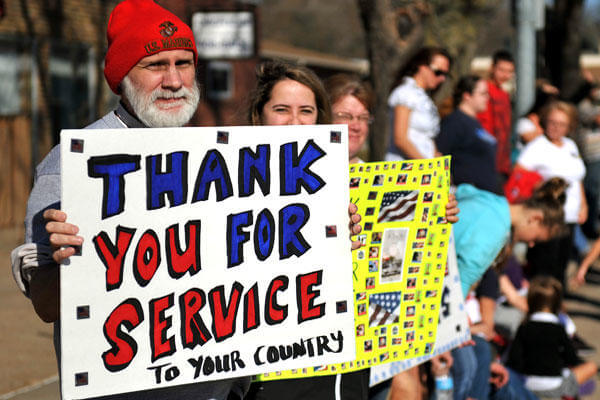One of my military clients was suffering from anxiety, flashbacks and nightmares. Like so many warriors, he remarked that he didn’t talk about these experiences, that I was one of the few he had told. When I asked whether he had discussed his experiences with his wife, he answered, “No, she doesn’t understand.”
As an active-duty military psychologist, I have treated a huge number of combat and trauma survivors, including those from every war including and since the national ordeal that was World War II. One of the things I think we Americans have to understand is how historical timing can affect the return from war.
Many great individual Americans have handled the return of their loved ones with patience, skill and care. Yet our history shows that the timing of that return can help or hurt the message that we inadvertently send to warriors.
After World War II, Americans wanted America to return to normal. They wanted prosperity and life as good or better than it had been before the war. Recall that, unlike subsequent wars, virtually every American had been directly affected and involved in the war effort through rationing and other efforts.
It was not that the returning World War II soldier did not talk about his experience. It was that when he began to talk, he got the very strong message from family and friends to get back to normal.
In public and private, others did not want to hear about the realities of the heroic and often terrible ordeal of the servicemember. All war is hell and America did not really want to hear about what it took to get the job done.
During and after Vietnam, the public disliked the war and did not see its purpose. Those who fought the war were treated as if they had done something wrong and they were shunned, mistreated and sometimes vilified. Again, the message from the public was “I don’t want to hear about your experiences.”
In other wars, the societal messages sent to returning warriors were less pronounced. Too often, warriors receive those messages as: “I don’t want to hear about it -- can you get back to a normal life, a normal marriage, and be a normal person?”
Americans have willingly gone to war and experienced hardships, pain, death, physical and psychological trauma, loss, and the guilt that comes with surviving. In war, strengths and weaknesses that make us human are exposed.
In the midst of all of this, these humans have accomplished great things under terrible circumstances on our behalf and in defense of America and freedom. These Americans will tell us that they are not heroes-- but they are.
Clearly, we don’t want them to suffer any more than necessary and we don’t want their suffering to last a lifetime -- in silence, no less. But what can we do about it?
We can do a lot. First of all, one of largest and most unaccounted for factors or causes of chronic trauma reactions or PTSD is that the warrior feels unappreciated for what he has endured and for what he has done. The first remedy is for us to frequently show our appreciation by telling him that we will never let him forget how aware we are of his sacrifice.
The second remedy is similar. It is to show the warrior how much we care by making every effort to listen to him and to ask that he share with us his experiences. This is the contract between the receiving public and the returning warrior: “Please tell me what you did and I will listen. I will listen as long as you want to talk and as many times as you want to tell me. I will never stop listening to you and I will never cease in my effort to understand.” In this way, he feels accepted. In this way, he can help us understand. In this way, he can be fully appreciated.
-- Bryce Lefever is a Navy psychologist living in Virginia.





















